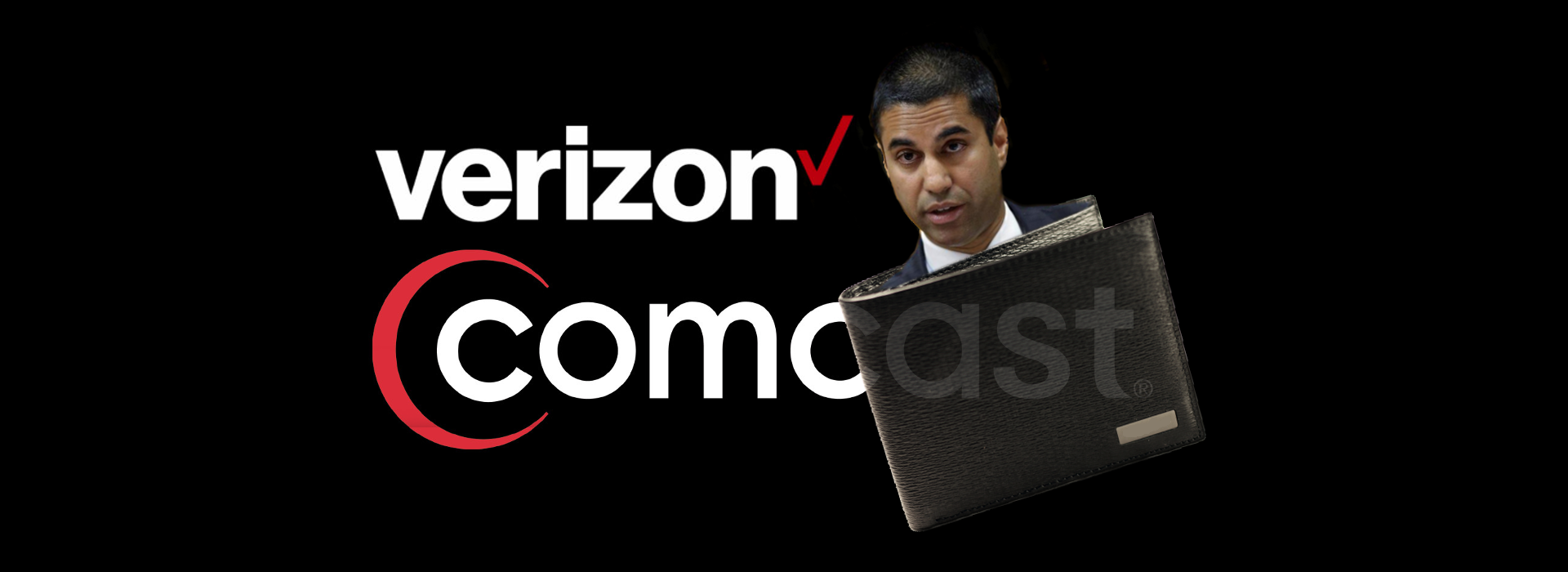

Ajit V. Pai is the chairman of the FCC as of January 2017. Appointed by President Trump, Mr. Pai aims to revoke the Title II classification of Internet Service Providers (ISPs) as common carriers. This would mark the end of Net Neutrality as we know it, giving ISPs complete power over the internet - including the ability to outright ban certain websites on their network.
Ajit has spent several years as a lawyer for Verizon, and is seen more as an "ally to broadcasters" than a steward of the FCC.
We can't legally say we know exactly, but most of the arguments against Net Neutrality revolve around money. For example, the ISPs claim a "free market" right to levy tiered pricing upon the public, instead of the equal pricing enforced under the Title II protections in the spirit of free speech. It appears that Ajit Pai's intentions are to help the entrenched ISP duopolies that controls the United States make even more money.
Here are some things that ISPs could do without the current restrictions:

Net Neutrality is the internet's guiding principle: It preserves our right to communicate freely online. Net Neutrality means an internet that enables and protects free speech. It means that ISPs should provide us with open networks — and shouldn't block or discriminate against any applications or content that ride over those networks. Just as your phone company shouldn't decide who you call and what you say on that call, your ISP shouldn't interfere with the content you view or post online. Without Net Neutrality, cable and phone companies could carve the internet into fast and slow lanes. An ISP could slow down its competitors' content or block political opinions it disagreed with. ISPs could charge extra fees to the few content companies that could afford to pay for preferential treatment — relegating everyone else to a slower tier of service. This would destroy the open internet. savetheinternet.com
Title II is part of the Communications Act of 1934. In essence, it prevents service providers from abusing customers. In 2015, an update to the Communications Act modernized the literature and reclassified ISPs under Title II as "common carriers". This change gave the FCC oversight of ISPs, allowing them to ensure net neutrality, and even set prices for services provided by ISPs.
If Pai's plans come to fruition, ISPs will no longer be regulated by the FCC. Instead, it will be up to the FTC to protect consumers (read "EVERYONE", including businesses!) from harmful business practices. ISPs have actively fought net neutrality in the past, and they're certain to continue.
Without FCC intervention, ISPs can block access to sites, extort companies for using more bandwidth than others, and cap and throttle network speeds for users - and they have.
We cannot allow this type of behavior to continue.
Send a comment to the FCC! The original link to send comments has been removed, and a new, more obscure one has been added. Because of this, I've attached a guide here on how to file a comment.
You can also send comments to through the EFF's "Dear FCC" website: https://dearfcc.org/
Call the FCC at: 1-888-CALL FCC (225-5322).
Contact your Representatives and Senators! Let them know Net Neutrality matters to you! Collectively we have a voice.